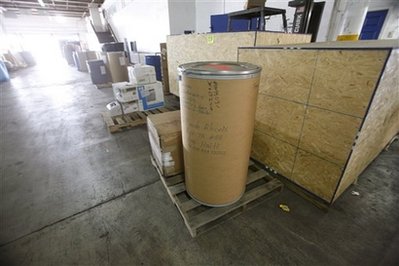| @wehaitians.com | |
No one writes to the tyrants | |
HistoryHeads/Not Just Fade Away |
| Correspond with us, including our executive editor, professor Yves A. Isidor, via electronic mail: |
| letters@wehaitians.com; by way of a telephone: 617-852-7672. |
| Want to send this page or a link to a friend? Click on mail at the top of this window. |
|
 |
|
| Posted Friday, August 22, 2008 |
| Not inclined to also be communicated the news that more of them have starved to death, relatives abroad offer food lifeline to Haiti poor |
| By Jennifer Kay, Associated Press Writer |
|
|
|
 |
|
| A bus sits on a ship bound for Haiti, in an Aug. 8, 2008 photo, on the Miami River, packed with barrels of goods for people in the island nation. The goods shipped to Haiti, once a supplement for families there, now are a lifeline amid worsening hunger, soaring food prices and a lack of arable land in the deforested island nation. (AP Photo/J. Pat Carter) | |
|
|
|
|
|
 |
|
| A ship on the Miami River in Miami is loaded with goods, Aug. 8, 2008, headed for Haiti. The goods shipped to Haiti, once a supplement for families there, now are a lifeline amid worsening hunger, soaring food prices and a lack of arable land in the deforested island nation. (AP Photo/J. Pat Carter) | |
|
|
|
|
|
 |
|
| A barrel of goods sits in a Miami warehouse, waiting to be shipped to Haiti, in an Aug. 8, 2008 photo. The goods shipped to Haiti, once a supplement for families there, now are a lifeline amid worsening hunger, soaring food prices and a lack of arable land in the deforested island nation. (AP Photo/J. Pat Carter) | |
|
|
| Wehaitians.com, the scholarly journal of democracy and human rights |
| More from wehaitians.com |